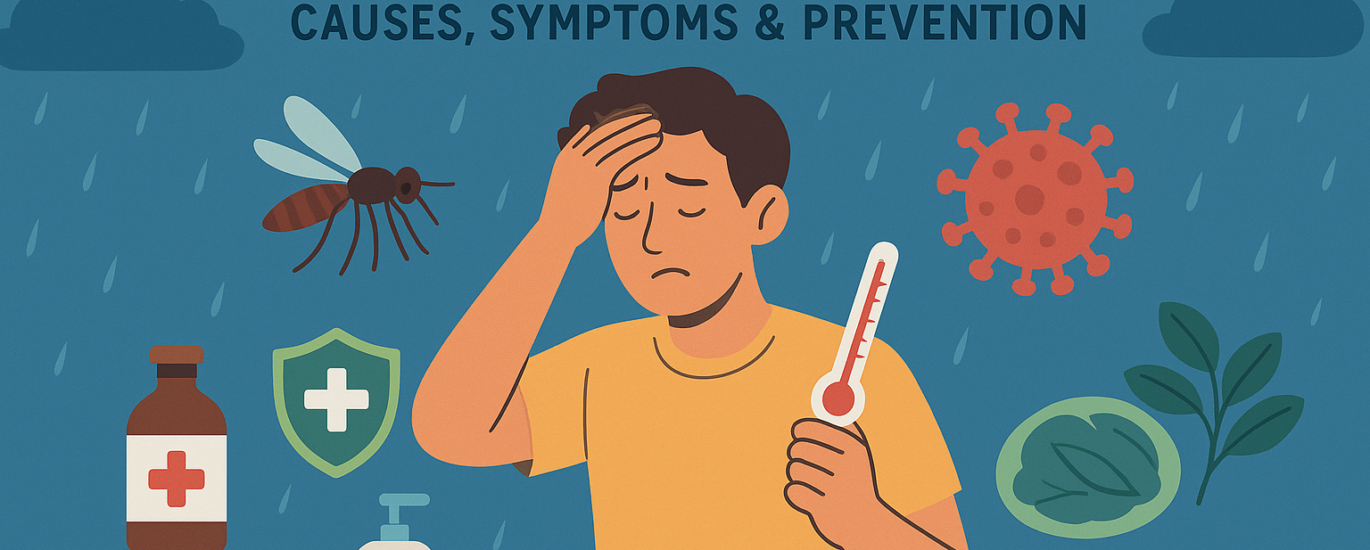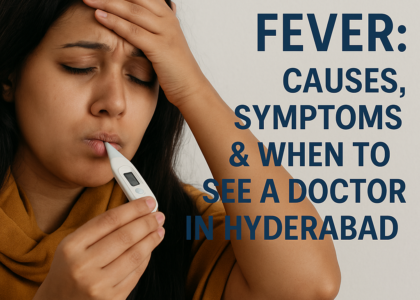The monsoon season brings much-needed relief from the scorching summer heat, but it also comes with a rise in seasonal illnesses, especially fevers. The warm, humid climate and waterlogging create ideal conditions for the spread of infections. Understanding the common monsoon fevers, their symptoms, and preventive measures can help you and your family stay safe and healthy.
Common Monsoon Fevers
-
Dengue Fever
-
Spread by the Aedes aegypti mosquito.
-
Symptoms: High-grade fever, severe body pain (“breakbone fever”), headache, skin rash, nausea, and bleeding tendencies in severe cases.
-
-
Malaria
-
Transmitted by the Anopheles mosquito.
-
Symptoms: Intermittent fever with chills and rigors, sweating, body ache, nausea, and fatigue.
-
-
Chikungunya
-
Also spread by Aedes mosquitoes.
-
Symptoms: Sudden high fever, intense joint pain (can last weeks to months), headache, and rash.
-
-
Typhoid Fever
-
Caused by contaminated food and water.
-
Symptoms: Prolonged fever, abdominal pain, diarrhea/constipation, headache, and loss of appetite.
-
-
Leptospirosis
-
Spread through contact with water contaminated by animal urine.
-
Symptoms: Fever, chills, muscle pain (especially calf pain), headache, jaundice, and in severe cases, kidney or liver involvement.
-
-
Seasonal Flu (Viral Fever)
-
Airborne transmission due to close contact in crowded places.
-
Symptoms: Fever, sore throat, runny nose, cough, body ache, and weakness.
-
Warning Signs – When to See a Doctor Immediately
-
Persistent high fever not responding to medication
-
Severe headache, rash, or bleeding tendencies
-
Breathing difficulty or chest pain
-
Intense abdominal pain or vomiting
-
Jaundice, confusion, or reduced urine output
Prevention Tips for Monsoon Fevers
✅ Avoid stagnant water around your home to prevent mosquito breeding
✅ Use mosquito repellents and nets
✅ Drink boiled or filtered water
✅ Eat freshly cooked, hygienic food
✅ Wash hands frequently with soap
✅ Avoid walking in flood water when possible
✅ Get timely vaccinations (e.g., flu shot, typhoid, hepatitis as advised)
Final Word
Most monsoon fevers are preventable with proper hygiene, mosquito control, and timely medical care. If you or your loved ones develop a fever during the rainy season, do not ignore it—early diagnosis and treatment can prevent complications.







